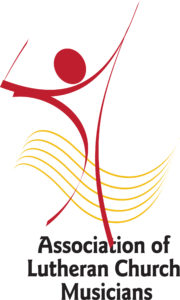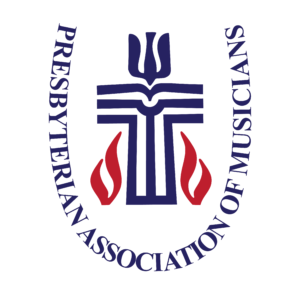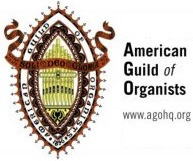Mykayla Turner holds a Master of Sacred Music with a Liturgical Musicology concentration. She recently obtained her A.C.C.M. in Piano Performance from Conservatory Canada, and she is currently completing a Master of Theological Studies. Mykayla has presented research at conferences in the United States, Canada, and the United Kingdom. Apart from her academic work, she is an active church musician and liturgist. She works as a worship coordinator for a Mennonite congregation in rural Ontario.
A Poem
I attended a friend’s wedding this summer. It was an outdoor ceremony in a wooded section of a campground, so we sang everything a cappella, including one number hastily rehearsed by a hodge-podge group of “friends and dads.” While it would be worthwhile to reflect on the ceremony’s musical content, it wasn’t the music that caught my attention. Instead, it was a reading. One sibling read Mary Oliver’s poem, “Don’t Hesitate,” which begins with an admonition:
“If you suddenly and unexpectedly feel joy, don’t hesitate. Give into it” (Oliver 2010).
I love that idea. It stuck with me because I want to heed Oliver’s advice, allowing myself to feel joyful without delay or reservation. That’s not how Advent works, though, is it?
Advent…not Christmas yet!
It’s the perennial concern of a church musician. The Advent season begins in December and lasts for four weeks, bringing us right to the doorstep of Christmas Eve, but we see evidence of Christmas festivities in the world around us by November 1, if not earlier. Who can blame the congregants who wish to join the throngs of non-liturgical folk singing Christmas carols for two months or more? It’s fun! More than that, it brings joy to our lives! After all, Oliver told us not to hesitate.
For those who follow a liturgical calendar, though, we know that Advent calls us to “solemn stillness” rather than exuberant joy (Clymer Kurtz and Clymer Kurtz 2014). Much like Lent, Advent makes room for reflection, lament, and longing. While we know that Jesus already entered the world, we act as if we are still waiting for his arrival, reacquainting ourselves with the world’s grief and remembering again why we still hope for the ultimate redemption of creation. It is a season of intentional restraint so that the eventual joy of Christmas feels even more tangible. Advent is a difficult season, but it bears rich fruit. Maybe it’s worthwhile to hesitate sometimes.
You might think that I’m taking the side of the church musician, encouraging you to remain steadfast in your refusal to accommodate requests for Christmas carols before December 24. That’s not my intention, though. You see, Oliver alerts us to an important fact: Even in a season of intentional lament, we will encounter causes for celebration. Likewise, in a season of intentional celebration, like Eastertide (which deserves far more attention than what it currently receives from most congregations), we will encounter occasions for lament. No season is monolithic, even if the liturgical calendar makes it seem so.
Wiggle Room
How then do we anticipate, acknowledge, and make allowances for the complexities of the Advent season when choosing music for our congregations? Here’s one simple suggestion: What if we concluded each service with a Christmas carol? Even if we make a relative commitment to withhold exclamations like “Glory to God in the highest heaven!” until the angels join us on Christmas Eve (assuming that most congregations will read and reflect on Luke 2:1–20 on December 24), it’s not so much heretical as it is honest to acknowledge throughout Advent that we know how the story concludes. We know that longing is not the last word; rather, our cries of lament soon enough blossom into exuberant celebration of the birth of Jesus. Singing a Christmas carol at the end of a service which acknowledges the world’s deep need serves as a foretaste of the good news that we won’t need to stifle for much longer: God is with us! Love is both imminent and immanent.
Worship already often concludes with some kind of uplifting benediction, so I contend that it might suit the flow of a service, the veiled hope of the season, and the ever-shifting state of the world to set aside our well-intentioned reservations for a moment and sing a Christmas carol. Did I mention what comes next in Oliver’s poem? After calling us to “give into” joy without hesitation, she makes the following observation:
“There are plenty of lives and whole towns destroyed or about to be. We are not wise, and not very often kind. And much can never be redeemed. Still, life has some possibility left. Perhaps this is its way of fighting back” (Oliver 2010).
The poem continues for a few more lines, but even from this excerpt, we sense Oliver’s rhetorical aim. She means to communicate that grief and joy are not discrete realities appearing in chronological order in our lives. Joy follows a much less linear and much more defiant trajectory than what the liturgical calendar might lead us to believe, and it’s worthwhile to make that corrective in our work as church musicians. We must not fail to recognize and lament the world’s need, but at the same time, joy is far too fleeting for us to ignore when it “suddenly and unexpectedly” appears in our lives. In this season, and in all seasons, we can’t afford to hesitate.
Don’t Hesitate by Mary Oliver
If you suddenly and unexpectedly feel joy,
don’t hesitate. Give in to it. There are plenty
of lives and whole towns destroyed or about
to be. We are not wise, and not very often
kind. And much can never be redeemed.
Still, life has some possibility left. Perhaps this
is its way of fighting back, that sometimes
something happens better than all the riches
or power in the world. It could be anything,
but very likely you notice it in the instant
when love begins. Anyway, that’s often the
case. Anyway, whatever it is, don’t be afraid
of its plenty. Joy is not made to be a crumb.








